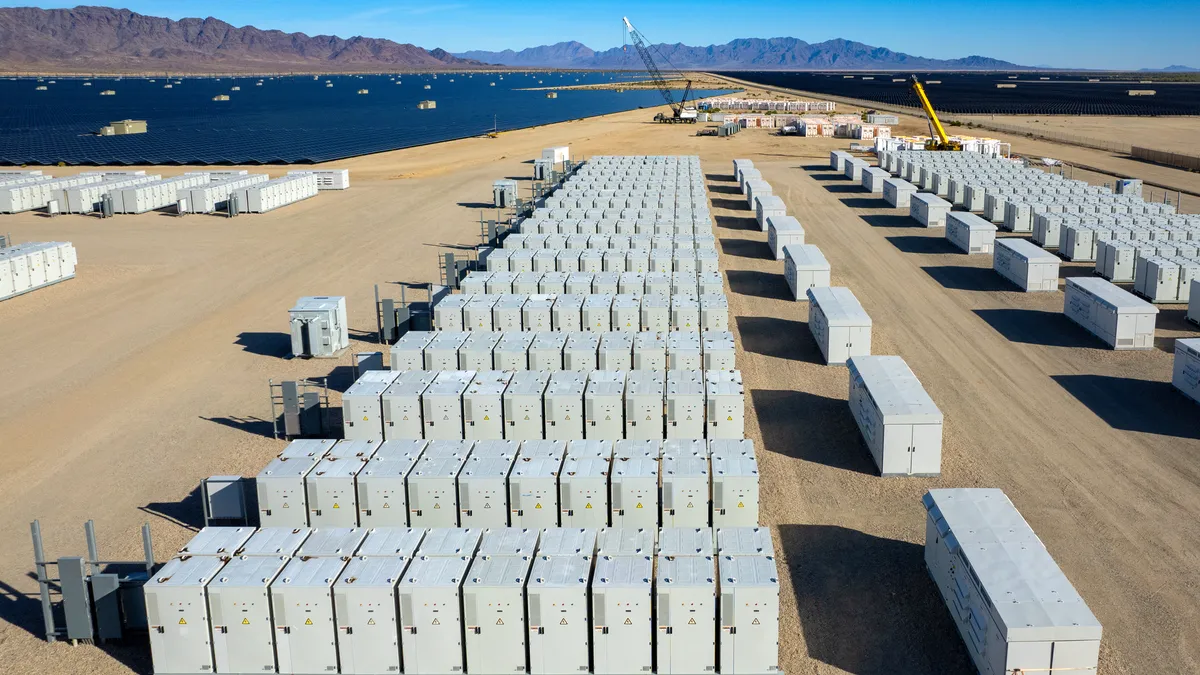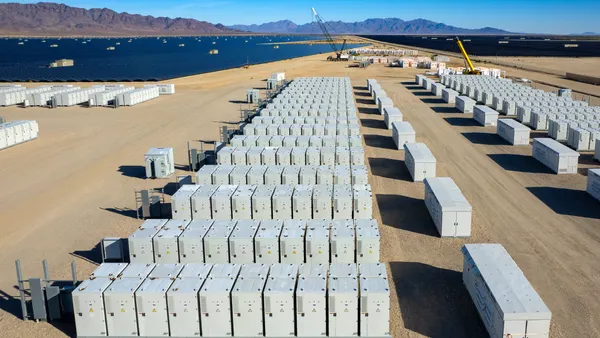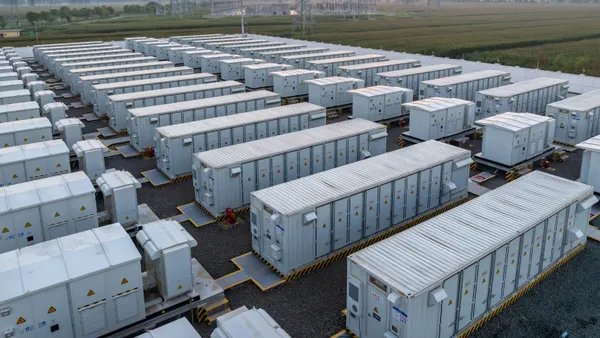Dive Brief:
- Enphase Energy has expanded support for grid services programs — or virtual power plants — in Puerto Rico, Nova Scotia and Colorado, the solar and battery provider said on Feb. 6.
- In Colorado, nearly 1,000 customers with about 10 MW of enrolled capacity participate in Xcel Energy’s recently expanded Renewable Battery Connect program, Xcel spokesperson Tyler Bryant said in an email. Xcel’s Colorado interconnection queue has another 13 MW of distributed battery capacity, Bryant said.
- Xcel is seeking approval from the Colorado Public Utilities Commission for up to 125 MW of virtual power plant capacity “to better accommodate new electrification growth, more efficiently operate the grid [and] improve reliability,” Bryant said.
Dive Insight:
The Renewable Battery Connect program provides enrolled, solar-charged batteries with an $350/kW upfront incentive, capped at $5,000 per site, plus a $100 annual performance incentive over five years, according to a program information sheet provided by Xcel. Xcel manages the batteries up to 60 times per year during periods of peak demand, it says.
The Colorado upfront incentive is significantly more generous than those for the Puerto Rico and Nova Scotia programs. Colorado customers who enroll three Enphase IQ Battery 5Ps could earn $4,032 upfront, compared with $500 upfront per customer in Nova Scotia and nothing upfront in Puerto Rico, Enphase said. The Nova Scotia and Puerto Rico programs offer respective annual performance incentives of $300/kW delivered per season and $1/kWh.
The ample Colorado incentive could help boost battery attachments in the state, said Michael Norbeck, head of grid services at Enphase Energy.
When it comes to battery incentives, “utilities sometimes get stuck in a cost-effectiveness loop, where it’s a race to the bottom and doesn’t end up helping the market,” Norbeck said.
Enphase’s participation in Renewable Battery Connect comes as Xcel meets a statutory deadline this month to establish a performance-based VPP program in Colorado. Xcel previously expressed doubts about its ability to roll out a 50-MW VPP pilot by October 2024 ahead of a full-scale rollout by November 2026, as envisioned in a January 2024 recommended order by PUC commissioner Tom Plant.
“[Renewable Battery Connect] might be a way for Xcel to continue to get more comfortable with the technology and the use cases that come with it,” Norbeck said.
Xcel also offers a $175/kW upfront incentive for residential and small business battery attachments in Minnesota through its Battery Storage Incentive program. The utility anticipates making a performance-based battery demand response program similar to Renewable Battery Connect available to Minnesota customers beginning in the second quarter of 2025, Bryant said.
The primary use case for Renewable Battery Connect is peak load management, but a “future state” for it and other VPP programs “will probably have more dynamic and complicated use cases,” Norbeck said.
Some more sophisticated U.S. VPPs already perform a wider range of grid services. For example, Rocky Mountain Power’s Wattsmart battery program provides voltage regulation in addition to load shaping.
“As the program scales with higher levels of customer participation, [distributed energy resources] will have an even greater role in how we plan to serve significant electric growth in the future,” Bryant said.














